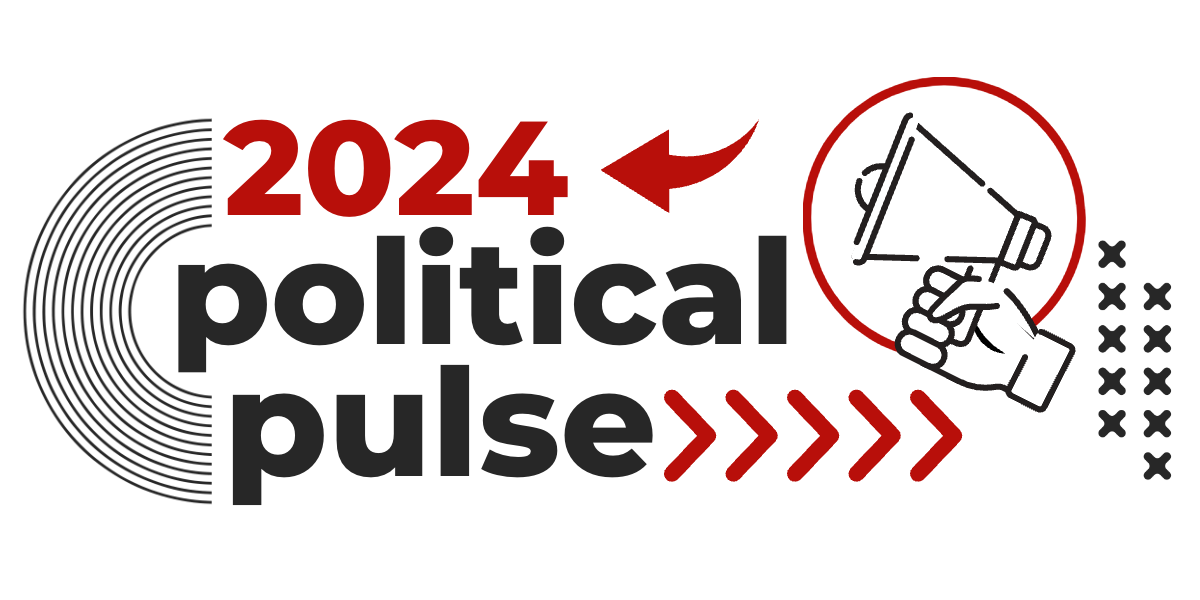DATA POINTS
- 50%: Estimated percentage of 18-29 year olds who voted in the 2020 election.
- 79.11 Years: The current life expectancy in the U.S., up from 76.75 years in 2000.
- 101.1 Degrees: The temperature the water between the mainland and the Florida Keys reached this week.
- 500 Miles: The length of this year’s 50th anniversary of the Register’s Annual Great Bike Ride Across Iowa.
- $725:The average cost of a monthly car payment in the U.S. during the first quarter of 2023.
- $200 Million: The amount Barbie grossed at the domestic box office in its first 5 days.
 The Red Dragon Stirs Amid U.S. Election
The Red Dragon Stirs Amid U.S. Election
China, once considered a Sleeping Giant, has awoken and poses the greatest geopolitical threat the U.S. has seen since the Cold War. As such, the broad scope of Chinese influence will force it to be a mainstay during the 2024 Presidential Election. Presidential hopefuls are meticulously planning their anti-China agendas. The coupled U.S.-Chinese economies, Taiwanese independence, Chinese human rights abuses, homeland security, China’s African sphere of influence, and technology proliferation are just some of the components to acknowledge.
Arthur M. Schlesinger Jr. wrote of the Cold War in 1949, saying “in its essence, this crisis is internal.” He meant that while the external Russian threat was real, the real danger was the fear harbored by the American public. President Nixon, who governed the U.S. during the Cold War noted, “People respond more to fear than love. They don’t teach you that in Sunday School, but it’s true.” The Chinese threat to America is palpable, but how it is fought against during the 2024 political election will play a leading role in who will become the next President of the United States.
Former President Trump has been historically outspoken surrounding China’s offenses, and Florida Governor DeSantis posits U.S.-Chinese relations akin to a new Cold War. Former U.N. Ambassador Nikki Haley critiques both the Trump and Biden Administrations’ approach to China. South Carolina Sen. Tim Scott says he plans to prohibit China from buying U.S. farmland, donating to American universities, infiltrating U.S. airspace, and collecting Americans’ metadata. Whoever becomes the next POTUS, one thing is certain: they will have to face The Red Dragon head-on, especially as Americans currently say China is the greatest enemy of the U.S.
The Parties Play Offense on Defense Bill
With August recess on the horizon, the Senate this week scrambled to finalize their version of this year’s National Defense Authorization Act (NDAA), which passed 86-11 Thursday evening. Unlike the GOP-led House, the Senate largely sidestepped the controversial social issues – including abortion and transgender medical care – that the House included in their version of the bill.
Both the House and Senate versions of the NDAA include a military budget of $886 billion for fiscal year 2024 (an increase from 2023’s budget of $816.7 billion), a 5.2% raise for service members and the Department of Defense’s civilian workforce, and $300 million for Ukraine. Select lawmakers representing each chamber will now work jointly to negotiate legislation that reconciles the House and Senate NDAAs. The final bill must be in place to fund the military before legislators leave for Christmas.
To a lesser degree, last year’s NDAA also stemmed controversy. Even though it eventually received bipartisan approval, many legislators expressed concern over certain aspects of the act, like removing the military’s vaccine mandate and giving continual aid to Ukraine.
Killing One Bird With One X

Musk will also rebrand the entire company, effectively skeet shooting the Twitter Bird which has remained precious to the company since its inception. His decision to kill the Bird cracked a few eggs along the way as Meta, Microsoft, and others already own trademarks for the new name. Musk has always had big ideas for the platform, but not all of them were well-received, including forced payment for Twitter Blue verification as opposed to meeting earned verification requirements. Musk’s ambitions may be too grandiose as investors hope that the Twitter Bird does not fly too close to the sun.
Captchas Gotta Go

Luckily, their successors will likely not need human action. Soon, your computer or phone will communicate through back channels to the host site to prove your humanity. Small differences in web browsers, the “very human way” we scroll our cursors, or being signed into an Apple account, could be a ticket to ride. These new systems will increase business revenue: for each dollar businesses lose to fraud transactions, they lose $30 by discouraging consumers from continuing on their sites, which includes Captcha walls. The best-case digital security scenario is one where we do nothing, and our machines vouch for us behind the scenes.
Rising Rates Lead to Smaller Small Businesses

Small businesses may be some of the biggest losers amid the most recent rate hike. U.S. Small Business Administration loans, which are often considered more affordable for small businesses, have loan rates with double digits, leading many businesses to borrow less.
Why does this matter? Small companies fueled nearly all of the net job growth nationwide between 2020 and 2022 in stark opposition to the Fed’s struggle to cool the economy. As a result, 2023 has become the year of small businesses laying off their employees. 81% of all layoffs in March occurred in companies with fewer than 250 employees. This takes place as large corporations raise most of their funds via capital markets by issuing bonds. The effect is that companies with 250+ employees saw their cash positions grow by $61 billion between Q2 2022 and Q1 2023, whereas companies with less than 250 employees experienced cash reserves shrinking by $7 billion.
Read More at The Wall Street Journal
Are You Proud to be an American?

Instead, many Americans are finding identity in political parties and social movements. Culture wars have become a battling cry in elections and over morals between parties. Disagreements over many hot-button issues are ramping up and deepening the divide, from SCOTUS rulings to changing family life. More Americans than ever before believe that the U.S. is losing its morals, with half of Americans viewing its recent level of morality as “poor.”
Despite the divide, many leaders seek to reignite a sense of optimism beyond politics and cultural polarity. President Joe Biden said, “Democracy — that’s the soul of America, and I believe it’s a soul worth fighting for.” Republican leader Mike Rogers (Michigan) has called for Americans to “fall in love with America again.” Can people move beyond their differences to return to common ground and unity? Only time will tell.
INTERNATIONAL SPOTLIGHT
Deadlock Silences the S in Spain
Spain’s national elections left many people wanting more, none more so than the conservative Popular Party (PP) who, despite winning the elections, did not secure enough support to oust Socialist Prime Minister Pedro Sanchez. Sanchez’s Socialists finished in second place but their combined forces with allied parties gained slightly more seats (172 seats) than the PP and the far-right party known as Vox (170 seats). One coalition needs 176 seats to form an absolute majority in the Lower House of Parliament. Spanish political analyst Veronia Fumanal sees imminent deadlock in the Parliament.
Spain’s new parliament will meet in a month and will have three months to submit their agreed-upon Prime Minister to King Felipe IV. If they cannot reach a decision, as they are expected to, a new election will be held. A PP-Vox government would have followed fellow EU countries Sweden, Finland, and Italy in implementing a right-leaning government, which raises concerns for France and Germany who are both pushing for active EU immigration and climate policies. The United States is experiencing a similar down-the-middle legislative divide. The current 118th Congress sees a 51-49 Democrat-controlled Senate (which was 50-50 until Georgia’s DEM Sen. Warnock beat Herschel Walker during a run-off race), and 222-212 Republican-controlled House.
FEATURED TWEET




 The Red Dragon Stirs Amid U.S. Election
The Red Dragon Stirs Amid U.S. Election


